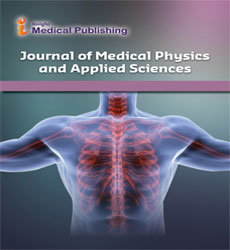Abstract
Demographic Study of Changing (Core) Body Temperature in Categories of Human Subjects for Health Implication
The human demographic modelling is to show the levels of confidence between threshold temperature at the time of diagnosis and expected temperature to infer if there may be spontaneous metabolic heat production relative to atmospheric temperature indices. These were to show a pathway to grades of cold spells or heat waves in affected individuals and thermal sensitivity of the physiological temperature in human subjects. Climate change dynamics are observed through the study the weather variables which include; the surface and ambient temperatures, wind speed, relative humidity and dew points which may have positive or negative effects on human and environment. The impacts of changing climate have been found to affect human health through trails of varying complexity of these factors of the weather system. Human exposure to weather extremes; heat waves, cold spells and increases in other forms of extreme weather events give rise to ailments or disease factors such as heat stroke and influenza in individuals. Inclusively, the body unusual rising temperatures (hyperthermia) or body unusual low temperature (hypothermia) is an indication from infections with biotic factors (viral and bacterial), parasite and other air pollutant resulting from climate changes. This study have taken dare interest in observing the intense equilibrium between the factors of the weather systems and normal human body metabolism as to continue to maintain core(internal) temperature around (37 ± 1)°C for healthy human body.
Author(s):
Alao OA, Owolabi FM, Musiliyu KA
Abstract | Full-Text | PDF
Share this

Google scholar citation report
Citations : 194
Journal of Medical Physics and Applied Sciences received 194 citations as per google scholar report
Abstracted/Indexed in
- Google Scholar
- China National Knowledge Infrastructure (CNKI)
- Secret Search Engine Labs
Open Access Journals
- Aquaculture & Veterinary Science
- Chemistry & Chemical Sciences
- Clinical Sciences
- Engineering
- General Science
- Genetics & Molecular Biology
- Health Care & Nursing
- Immunology & Microbiology
- Materials Science
- Mathematics & Physics
- Medical Sciences
- Neurology & Psychiatry
- Oncology & Cancer Science
- Pharmaceutical Sciences

